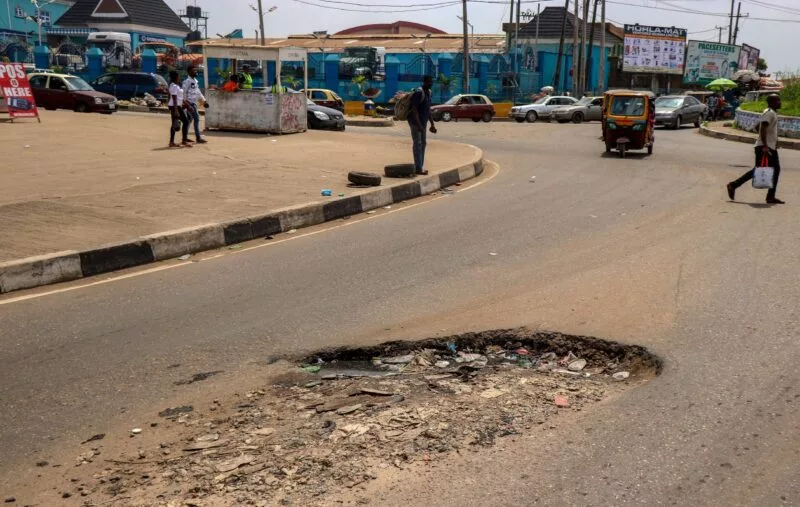In the vast expanse of Nigeria, a nation pulsating with vitality and promise, a network of decrepit arteries threads through the landscape, bearing the burden of neglect and decay. The specter of bad roads, a ubiquitous affliction, casts a pervasive gloom over the nation, leaving in its wake a trail of adverse consequences that echo through the realms of commerce, connectivity, and human well-being.
The economic pulse of Nigeria reverberates along the veins of its transportation infrastructure. Bad roads, pockmarked with craters and fissures, shackle the wheels of progress and stifle economic growth. The impediment to efficient movement of goods and services throttles the wheels of commerce, as transportation costs soar and delivery timelines elongate. Small and medium enterprises, the lifeblood of any thriving economy, find their viability compromised, as the wear and tear on vehicles escalate, siphoning away resources that could otherwise fuel expansion and innovation.
Connectivity, the sinew that binds a nation together, frays at the edges when bad roads mar the landscape. Remote communities, isolated by the quagmire of impassable routes, find themselves marooned in the periphery of progress. Access to education, healthcare, and economic opportunities becomes a distant dream, perpetuating cycles of poverty and marginalis-ation. The arteries of development, choked by neglect, sever the lifelines that should pump vitality to every corner of the nation.
Safety, a paramount concern in the journey of life, is compromised on the treacherous terrain of dilapidated roads. Accidents, often catastrophic in their consequences, become an ominous companion to commuters. Vehicles navigating the lunar landscapes of pothole-ridden roads contend with not only the physical toll but also the psychological strain of perpetual uncertainty. Lives are lost, families shattered, and dreams crushed, as the perils of poorly maintained roads cast a dark shadow over the very essence of existence.
Environmental repercussions echo through the ecosystem when bad roads weave their tapestry of degradation. Dust clouds, stirred by the relentless passage of vehicles on rutted surfaces, infiltrate the air, compromising respiratory health and settling as a gritty reminder of the broader ecological impact. Erosion, triggered by poor drainage systems exacerbated by bad roads, scars the landscape, eroding not only the soil but also the prospects of sustainable development.
The negative impact of bad roads across Nigeria is a narrative of economic stagnation, severed connectivity, compromised safety, and environmental degradation. As the nation strives for progress, the urgent call for investment in robust and well-maintained infrastructure becomes not just a necessity but a moral imperative, for the roads of a nation are the conduits through which the promises of tomorrow must journey. The time to mend these broken pathways is now, as the well-being of a nation traverses the very roads that crisscross its dreams.





